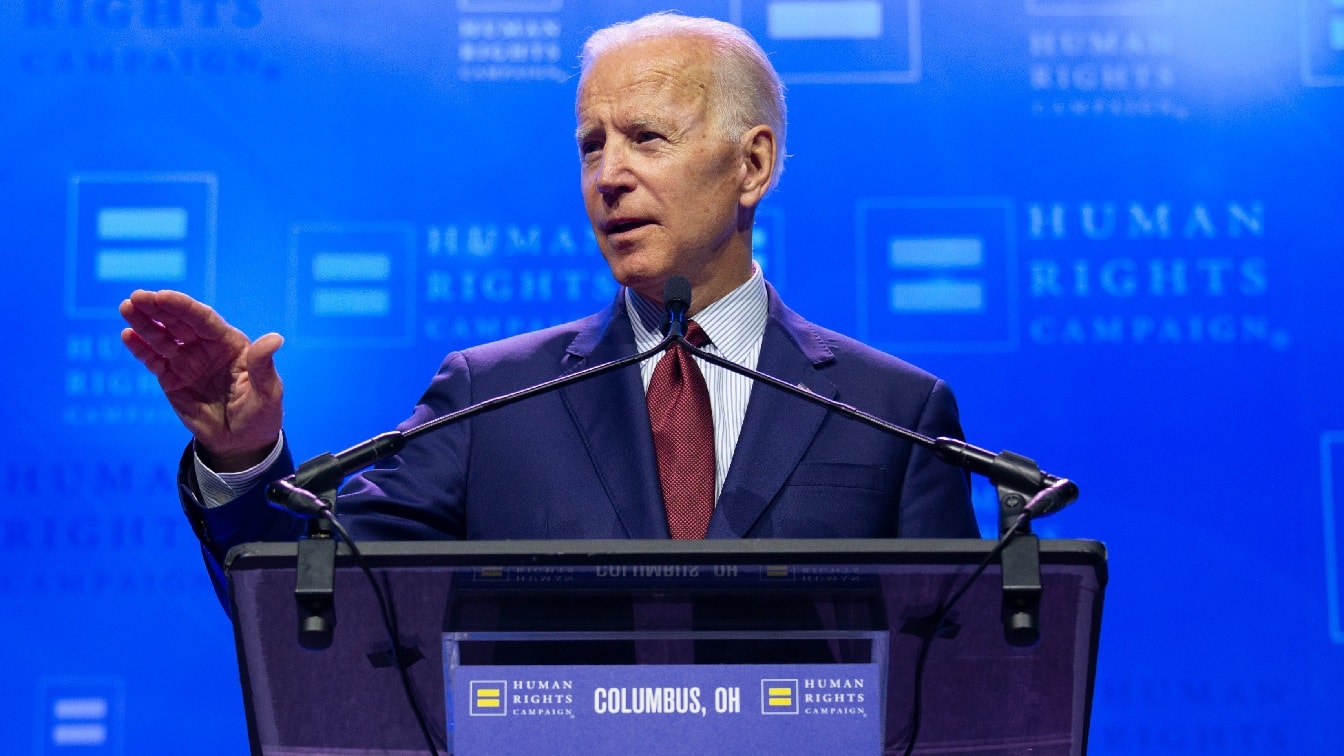President Joe Biden is being charged as a sellout for his dealings with railroad workers.
Back in 1992, when Biden was a Senator, he spoke up in defense of the railroad workers, who were two days into a disruptive strike. Biden criticized federal labor laws, which, Biden believed, allowed corporations, regulators, and Congress, to take advantage of workers.
“We need to restore a measure of balance to these negotiations,” Biden said. He then voted – with just five other senators – against using the federal labor laws to halt the ongoing strike. It was a very pro-labor moment for the ambitious senator.
Now, President Biden is leveraging the very same federal labor laws he once voted against using to prevent railroad workers from striking. Instead, Biden will use the labor laws to impose a tentative contract agreement.
The Biden administration brokered the contract in September. Labor Secretary Marty Walsh mediated the discussions between the railroads and the unions. The contract features a 24 percent raise by 2023 and a firm ceiling on health care premiums. Biden, pro-labor lawmakers, and union reps all commended the contract. Yet, the contract features only minimal improvements on workers’ sick leave requests. Accordingly, multiple railroad unions have rejected the contract (Tony Caldwell, president of the Brotherhood of Maintenance of Way Employees, explained to the Washington Post that his “members will not ratify a deal unless it includes more expansive sick leave benefits”). But Biden has the ability – using the federal labor laws he decried in 1992 – to enforce the contract and bypass a strike.
“As a proud pro-labor President, I am reluctant to override the ratification procedures and the views of those who voted against the agreement,” Biden said in a statement. “But in this case – where the economic impact of a shutdown would hurt millions of other working people and families – I believe Congress must use its power to adopt this deal.”
Apparently, Biden feels a railroad strike would imperil the economy. And with the economy already fragile, with inflation so high, Biden didn’t believe the risk of allowing a strike was justifiable. Biden is especially concerned with the vulnerability of supply chains, especially with respect to critical goods like motor fuel and water treatment chemicals. Some estimates hold that the strike could cost the U.S. economy $1 billion in just one week.
“Though a bitter pill for labor to swallow, enacting the agreement would put an end to the cliffhanger deadlines that have loomed every few weeks since summer, and allow all manner of industries that depend on freight rail shipments to stand down from doomsday preparations,” Tanya Snyder wrote for POLITICO.
As recently as yesterday, Biden officials were involved in negotiations to resolve the railroad dispute. But it seems that Walsh, Transportation Secretary Pete Buttigieg, and Agriculture Secretary Tom Vilsack have advised Biden to impose the September agreement on the grounds that “there is no path to resolve the dispute at the bargaining table.”
The railroad unions are already, understandably, upset; the unions believed Biden, who had cut against his peers in 1992 to stand up for railroad workers, would fight for them now, that he would help them expand their sick leave benefits. Those unions now believe Biden has sold out, that he “seems to cater to the oligarchs.”
Mainstream Democrats – who typically talk pro-labor but uphold corporate interests first and foremost – are signaling a willingness to uphold the contract. Yet just one senator is needed to prevent Congress from imposing the deal. Naturally, unions are looking to Senator Bernie Sanders to spoil Biden’s plan. Sanders has been advocating for increased sick leave in the deal – but his position on imposing the September contract is unclear.
At the risk of oversimplifying complex procedures and negotiations and interests and histories, I have a question: wouldn’t it have been easier and cheaper just to expand sick leave for railroad workers than to risk economic disaster? Wouldn’t it have been easier just to expand sick leave for railroad workers than to go through this political drama? It seems like there’s always an excuse. And it seems like there is always a “pro-labor” Democrat offering that excuse.
Harrison Kass is the Senior Editor at 19FortyFive. An attorney, pilot, guitarist, and minor pro hockey player, he joined the US Air Force as a Pilot Trainee but was medically discharged. Harrison holds a BA from Lake Forest College, a JD from the University of Oregon, and an MA from New York University. He lives in Oregon and listens to Dokken.

